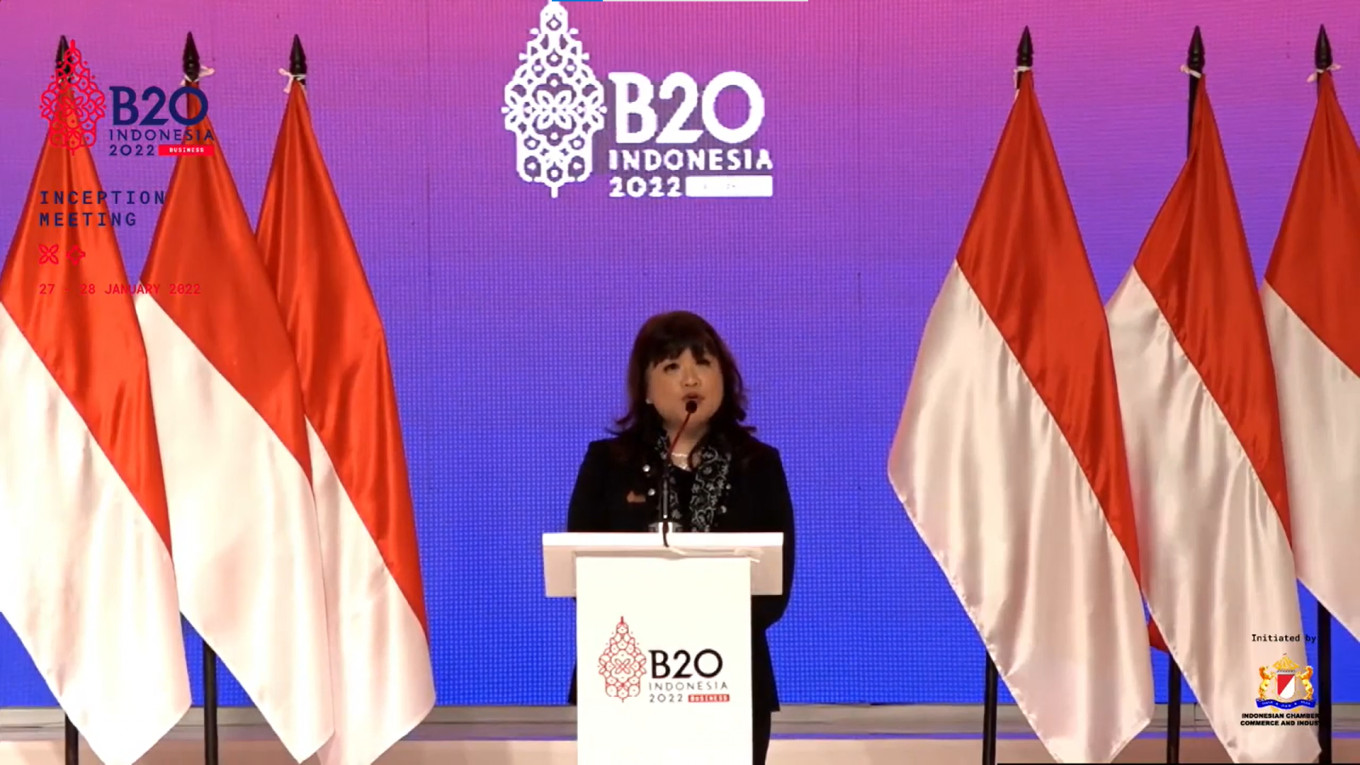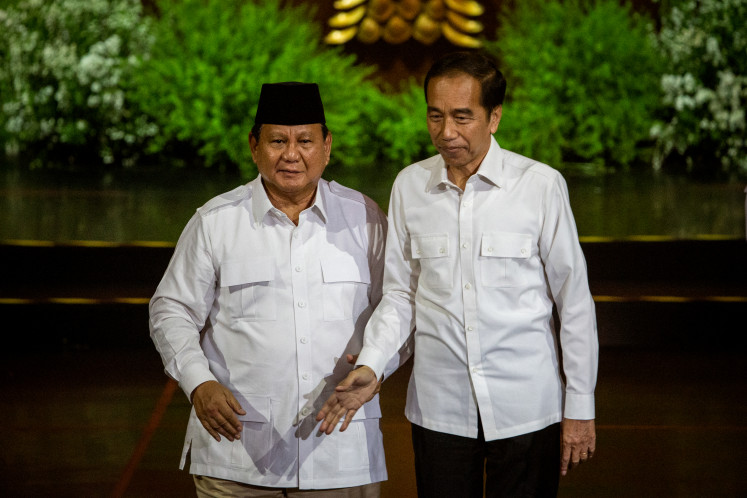Popular Reads
Top Results
Can't find what you're looking for?
View all search resultsPopular Reads
Top Results
Can't find what you're looking for?
View all search resultsBusiness must make sure no one is left behind as we fight climate change
Businesses should ensure they are a lifeline to local communities. This means procuring services from local businesses, creating, and maintaining new local infrastructure.
Change text size
Gift Premium Articles
to Anyone
I
am on my way to present at the B20 meeting in Bali, which is the Group of 20’s dialogue forum for the business community, and one thing is on the agenda: The Paris goals and the role business must play in helping the world keep global warming to well below 2 degrees centigrade above pre-industrial levels.
We’ve made significant progress in the past decade but still the world is on track for 2.7 degrees Celsius warming by 2100. It’s clear that countries will have to significantly accelerate the decarbonization of their economies in the coming years or the impacts of climate change, already damaging livelihoods, will escalate.
But it’s also clear this transition can’t come at the expense of people who are vulnerable to the huge economic shift this transition implies. At the same time, we can’t sit on our hands and do nothing because the people most at risk of being left behind in a poorly planned transition are also those whose livelihoods are most at risk due to climate change.
For example, The Deloitte Economics Institute’s Transition Vulnerability Index shows that 500 million jobs across just three countries (India, China, and Kenya) are vulnerable to the effects of climate change or a poorly executed transition. This is because many people in these economies are engaged in emissions-intensive and climate-dependent industries, like agriculture.
However, if the transition is a just one that assists vulnerable communities throughout the processes, jobs will be created. Deloitte predicts that a just transition assisted by business to net zero will create 134 million more jobs across the Asia Pacific than would otherwise exist.
The world’s transition to a decarbonized economy must be a just transition that ensures no one is left behind. But what this looks like differs from country to country and from local economy to local economy. This is where businesses have the unique ability (and responsibility) to ensure they have the right framework in place to aid a just transition in the areas they operate.
There are four primary domains that organizations designing a just transition framework need to address. The first relates to citizens and community – businesses should never extract profits from the communities in which they operate without giving back.
Businesses should ensure they are a lifeline to local communities. This means procuring services from local businesses, creating, and maintaining new local infrastructure, forming true partnerships with indigenous communities, and engaging proactively with the community at large to reduce inequality.
Linked to this is the second domain, is local economic diversification and growth. As the economic transition takes place, businesses should do their best to repurpose local assets by retrofitting and re-using them for new industries, rather than abandoning them.
The third domain is environment. Businesses operations that take from nature must give back – for example, land used for mining operations must be rehabilitated or repurposed, care must be taken to enhance biodiversity, and operations must rapidly reduce dependencies on fossil fuels and emissions intensive processes to increase climate resilience.
The fourth and final domain is employment. This covers the obvious tasks of providing meaningful job opportunities that contribute to wage growth as well as creating employment opportunities for disadvantaged groups. But it also goes to working with government to upskill the local population so they can benefit from the transition to a low-emissions global economy.
By creating and reallocating skills where they are needed in a coordinated transition, the workforce will be larger, highly skilled, and more productive in the long-term. Vulnerable workers will be central to this outcome, with their existing skills used to fuel this change, rather than a means to resist it.
Some countries are already developing national frameworks to reskill their populations. The Philippines, one of the countries most vulnerable to the impacts of climate change in the Asia-Pacific, has enacted a development plan which takes a long-term approach to creating green jobs and legislated a legal framework designed to generate and sustain the transition to a green economy and incentivize the creation of green jobs.
The success of the global effort to rise to the challenge of the Paris g oals will be partly judged on its ability to protect those who are most vulnerable and ensure that existing inequalities and social justice issues are not exacerbated. The input of the business community is crucial to ensuring this just transition occurs.
***
The writer is a partner in Deloitte Australia’s Climate and Sustainability Practice. She recently presented at the B20’s Energy, Sustainability and Climate change taskforce in Indonesia.











